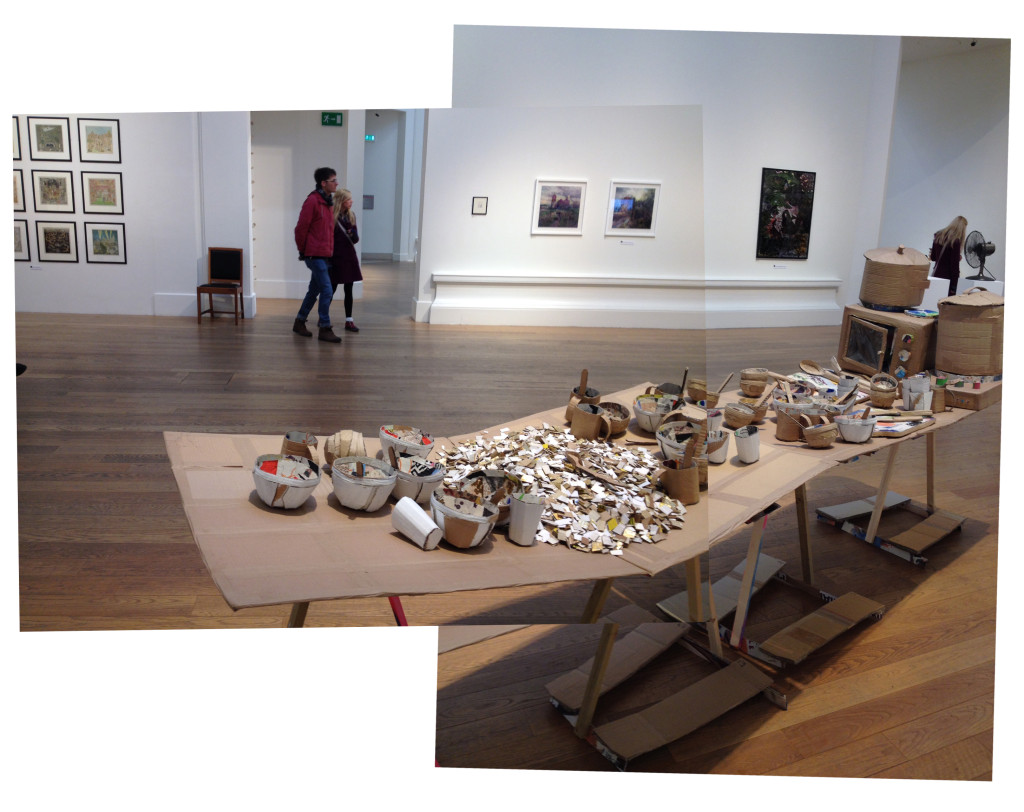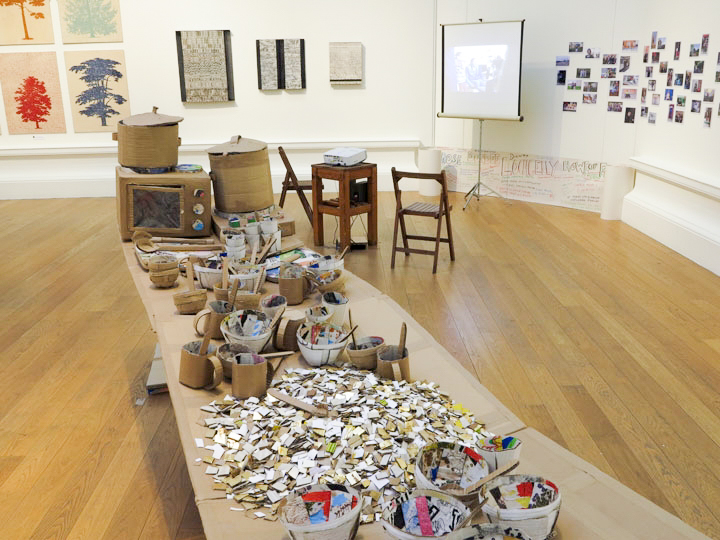My latest body of work has been exploring various ways to document performance. Many of my performances are inspired by stories that are told, and the documentation of these performances are yet another story, another layer. I presented a series of reliquaries at the RSA’s New Contemporaries, and the Fleming Gallery’s New Scottish Artists exhibition in 2014. These sculptures use the physical remains from my performances to expand from their origin. By utilizing the relic mythos I was able to present a new performance – The Onion Procession. I really enjoyed the concept of a reenactment performance and am exploring this theme further.
I was awarded a New Graduate Award with the Society of Scottish Artists and was part of their annual exhibition at the RSA in December. I created a new work, Nail Soup redux, based on the performance from my degree show. Nail Soup, also known as stone soup, axe soup, and bone button borscht, is a children’s fable found in many cultures. It tackles the theme of food scarcity and the importance of community. The original performance was a celebration of the Dundee arts community. I approached 15 arts organisations asking for supplies needed – hobs, pots, bowls, spoons- and they provided everything needed to cook and serve (and clean up after) the soup. The members of the community brought the vegetables, oil, spices, and side dishes. We all feasted together.
Nail Soup redux was my second reenactment performance. I made cardboard replicas of the original props for the performance. I wanted to explore the idea of art community, how that can change within a gallery setting, and what can be lost and gained within various spheres. I was not present at this reenactment, as my immigration status would not allow me to stay in the UK. I was supported culturally by the art community I found when I moved to Scotland, but without the support of government policies, I had to leave. The final work I made in Scotland, developed during Hospitalfield Arts Graduate Residency 2014, had a tiered price offered at various visa values. In the end it didn’t sell and was thrown into a skip. Se la vie, time continues, but how does this increased immigration reform effect the vibrance and diversity of the Scottish art scene?


















